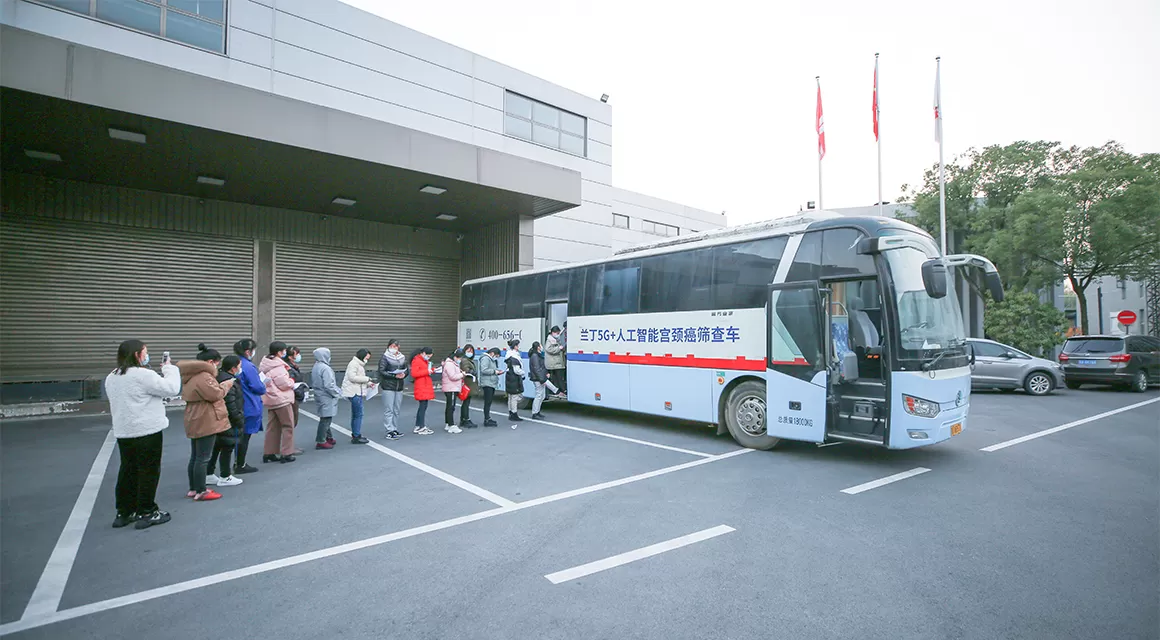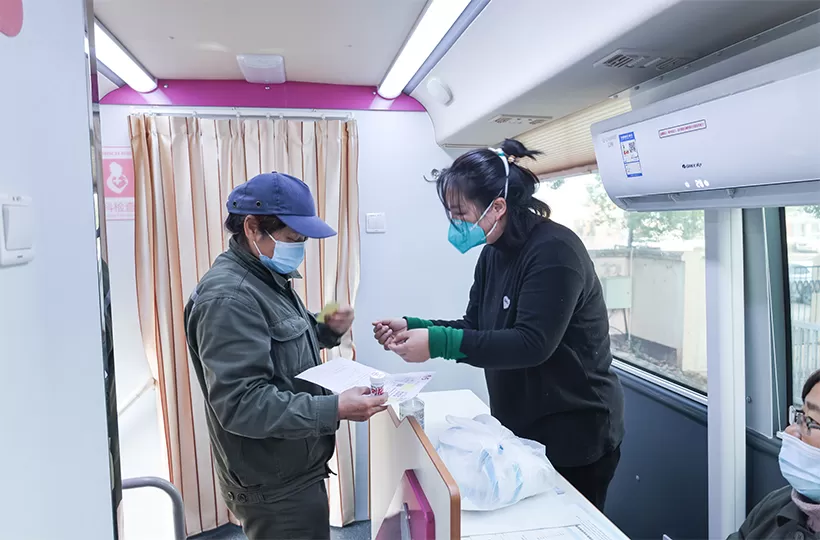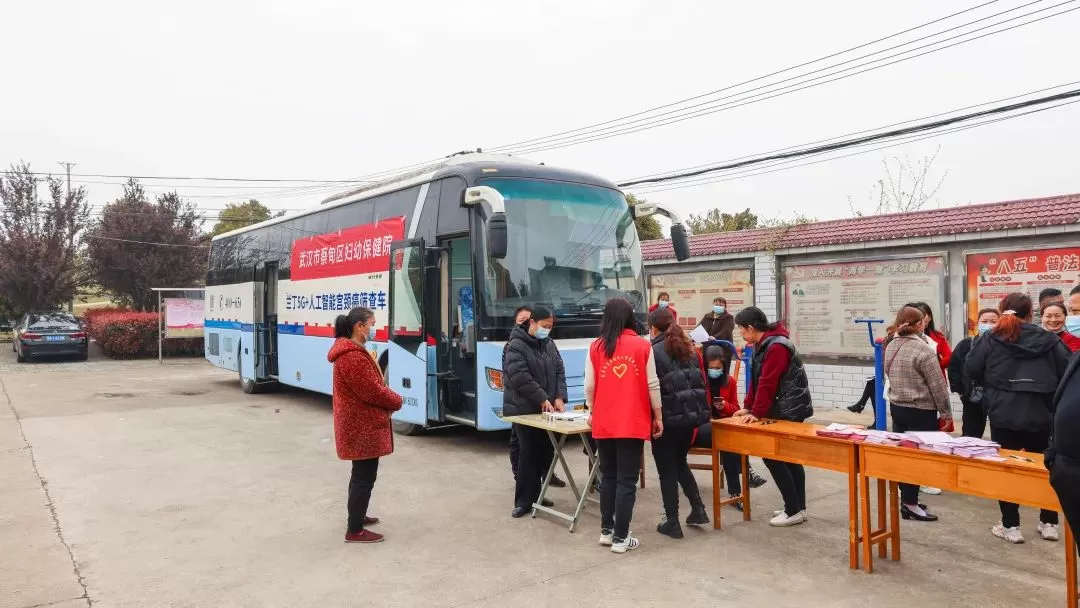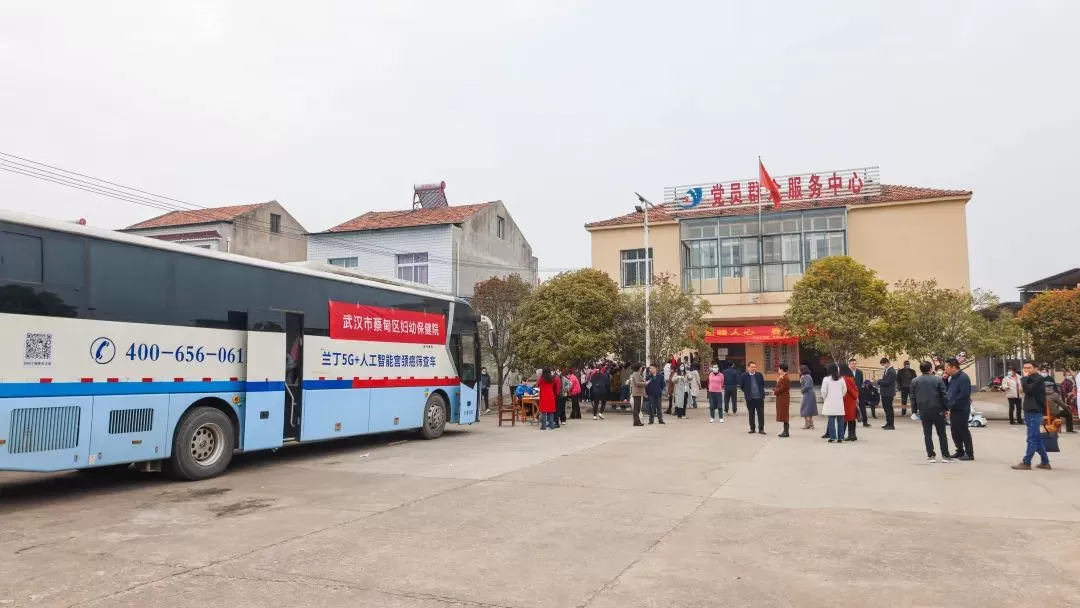
Cervical cancer, while preventable, remains a leading cause of death in underserved areas, particularly in China’s rural regions. Women in these areas face significant barriers to regular screening due to geographical isolation, limited healthcare infrastructure, and a shortage of pathology professionals. As a result, many are diagnosed at later stages, reducing the chances of successful treatment. Landing Med recognized the need for an innovative solution to provide cervical cancer screenings to these underserved populations, overcoming both access and diagnostic challenges.
Landing Med launched a mobile cervical cancer screening initiative using a custom-built bus equipped with medical tools and staffed with trained professionals to collect samples and educate women on the importance of cervical cancer screening. The bus travels to remote communities, providing accessible screenings to women who would otherwise lack healthcare options.

Community Outreach & Education:
Landing Med partnered with local healthcare providers and community leaders to raise awareness and educate women about cervical cancer screening and prevention.
Mobile Screening Unit:
The bus is equipped with gynecological exam tables and staffed by trained healthcare professionals, enabling on-site screenings and bringing services directly to women within their communities.
AI-Powered Screening & Telemedicine:
Cytology samples collected on-site are sent to nearby county hospitals for processing and scanning using Landing Med’s LD Patho 320A or LD Cyto2200 scanners. AI analyzes the samples for abnormalities and precancerous lesions, which are then reviewed by pathologists. Digital reports are sent via WeChat or directly to local healthcare professionals for follow-up.
The mobile screening bus traveled to remote regions, coordinated by local health authorities who helped organize screening sessions and encourage participation. Women with abnormal results were referred for follow-up care at nearby hospitals, enabling early detection and intervention.
Landing Med’s AI-powered mobile screening bus effectively bridged the healthcare access gap in remote areas, offering efficient, accurate, and accessible cervical cancer screenings. This innovative approach highlights the transformative potential of combining simple mobile healthcare solutions with advanced AI technology to improve healthcare coverage and empower underserved communities, ultimately enhancing health outcomes.

